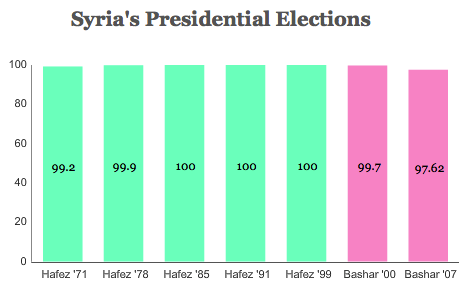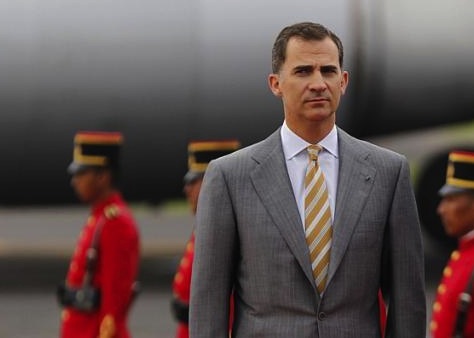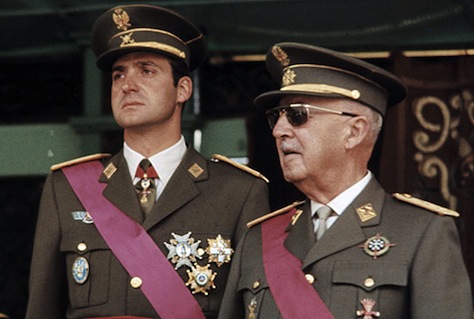A month ago, I scoffed at the idea of holding a presidential election in Syria at a time of civil war, with a pre-determined outcome, while millions of Syrians are living outside the country as refugees, and when fighting is still raging throughout much of Syria.![]()
But a quick look at the turnout indicates that it may have been hasty to discount the election as an exercise in futility — especially coming so soon after a flawed Egyptian presidential election where apathy reigned.
* * * * *
RELATED: Why is Syria holding a presidential election in the middle of a civil war?
* * * * *
There’s no doubt that the Syrian vote fails by any standard of a free and fair election — by American terms, by European terms, by Indian terms, by Indonesian terms. There was no question that Bashar al-Assad (pictured above), who has been Syria’s president since 2000, would win the vote, just like his father, Hafez al-Assad, remained in power since 1971, typically with somewhat predictable support:
Still, it’s incredible that Syria, where parts of the country still remain under rebel control, the race officially commanded turnout of 73.42%. If those numbers are to be trusted, and that’s a huge question, it means that Syrian turnout, at a time of war, was around 25% higher than turnout in Egypt’s presidential election last week. Stunningly, there are reports of thousands of Syrian refugees living across the border in Lebanon streaming back into Syria earlier this week to take part in the elections. Now, there are also reports that Syrian workers have been essentially forced en masse onto buses to vote:
“Of course I’m voting for Assad. First of all, I can’t not go vote because at work we’re all taken by bus to the polling booth. Second, I don’t know these other candidates. And also, I live here and have no options to leave – I don’t know what would happen if I don’t vote for Assad,” said a teacher in Damascus, contacted on Skype.
But if the point of the election was a show of strength and mobilization among Syrians living within territory that Assad currently controls, the Syrian regime can credibly claim some kind of victory, if not necessarily a democratic mandate.
Whatever the truth, it’s more than the ‘great big zero’ that US secretary of state John Kerry declared it yesterday in a hasty trip to Lebanon, which is still stuck in the middle of a presidential crisis that began last month and that has continued since former president Michel Suleiman left office on May 25. Continue reading Was the Syrian election more successful than Egypt’s?



